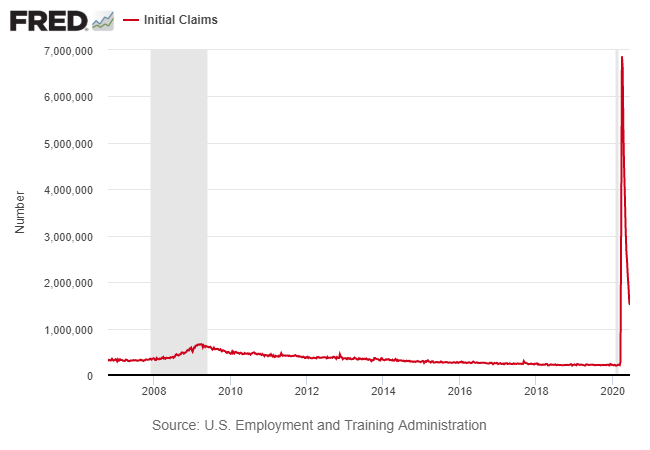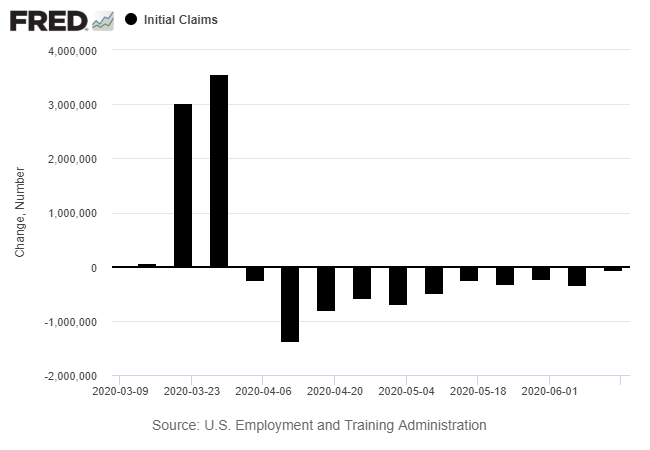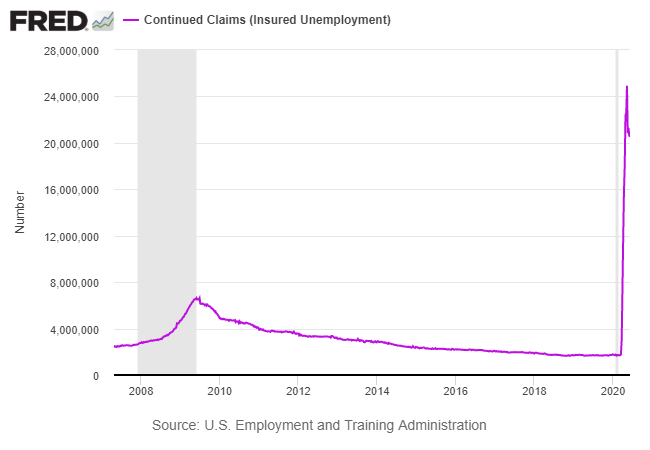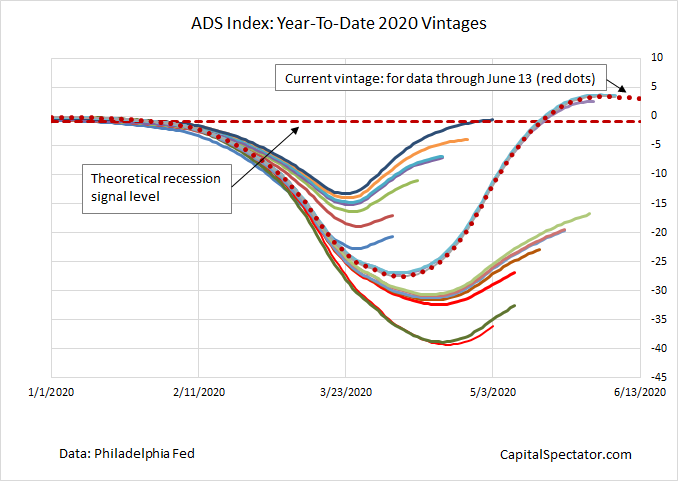The worst of the coronavirus recession for the US has passed and a recovery is underway. But the strength of the recovery is in question after yesterday’s disappointing update on jobless claims, which remain stubbornly high.
When the US economy shut down to battle COVID-19, starting in late-March, the labor market was a conspicuous victim. Notably, the number of workers filing for unemployment benefits spiked to nearly 7 million in the last week of March – by far the highest on record (since 1967).

Since the peak, new claims have been sliding, but the rate of decline has been slowing. In a troubling sign, yesterday’s release shows that new claims fell by just 58,000 last week. That’s a trivial decline when the number of new claims is still rising by more than 1.5 million every week and most of the 20 million-plus workers who’ve recently lost their jobs remain unemployed.

A similar story applies to the continuing claims data (published with a one-week lag), which tracks unemployed workers receiving government aid. After surging dramatically, the decline has been modest.

The danger is that the recovery in the labor market is slowing. With so much more progress needed, that’s a key headwind. If the sluggish rebound in hiring persists, the economic rebound is at risk of slowing and perhaps even reversing into a new phase of recession.
Ian Shepherdson, chief economist at Pantheon Macroeconomics, says:
“The 58K drop in claims this week is very disappointing, given that the level still remains so high."
It’s not clear why claims are still so high; is it the initial shock still working its way up through businesses away from the consumer-facing jobs lost in the first wave, or is it businesses which thought they could survive now throwing in the towel, or both? Either way, these are disappointing numbers and serve to emphasize that a full recovery is going to take a long time.
The good news: the economy is bouncing back from the depths of the recession. The Philadelphia Fed’s ADS Index, a real-time measure of US economic conditions, shows a strong bounce off the contraction’s trough. The chart below indicates that the latest revision to the index (for data through June 13) reflects a decisive recovery relative to the darkest point in the contraction in April/May.

But the deceleration in the improvement in the jobless claims data is a worrisome risk factor. If workers continue to lose their jobs at a rate of 1.5 million a week, the blowback will create headwinds consumer spending, the critical component for US economic activity.
Yes, retail spending in May surged—far more than expected. The nearly 18% monthly increase is, by far, the highest gain on record. That’s an encouraging sign.
There was also a spectacular gain in payrolls last month – 2.5 million new jobs. Impressive as that is, it’s still a small recovery so far relative to the 22 million jobs lost in March and April.
The acid test for the economic rebound awaits on several fronts over the next few months. Even after the bounce in May the net losses remain huge. Recovery needs to continue for several months at a robust pace to repair the damage on a meaningful level.
To be precise: until the labor market stabilizes and – more importantly – the lion’s share of unemployed workers are re-employed, the outlook for the economic recovery will remain shaky. A key metric for monitoring this risk: jobless claims. So far, however, this indicator is flashing a warning for managing expectations.
“The recent sightings of green shoots for economic growth are going to fade in a hurry if workers can’t return to the jobs they lost during the pandemic recession,” advises Chris Rupkey, chief economist at MUFG in New York. “Over 20 million out of work without a paycheck is a lot of spending missing from the economy.”
